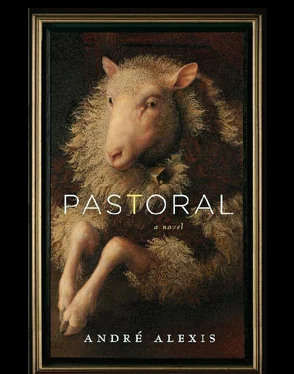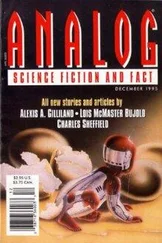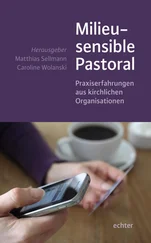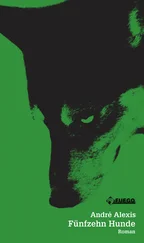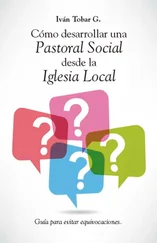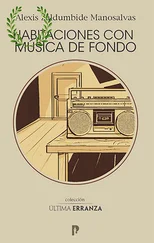— What does he do for a living?
— That’s hard to say. He used to be a farmer. Then he worked for Massey Ferguson. Then he made a lot of money selling a fertilizer he invented. He still farms a little, but now, I think, he mostly invents things.
— I’d like to meet him again, said Father Pennant. We never got a chance to talk.
So it was that, three weeks after the incident with the moths and a week after Heath Lambert had returned from the Lake District — where he’d been travelling — Father Pennant was in a house at the outskirts of Oil Springs waiting for Lambert to come in from a back garden where he was gathering rhubarb leaves to use in an insecticide.
Though they were the same age, Heath looked much older than Lowther. His hair was brush-cut, which gave him a military demeanour. He was short, about five foot five, with a belly like a sleeping pup. He smiled at whatever was said or whatever he himself said. It left the impression Heath could give or take any news with equanimity. At least, that was Father Pennant’s impression, until he realized that Heath’s smile was something of a nervous tic, that an alternate indicator of Lambert’s thoughts and feelings were his eyes: dark brown, almost unblinking, serious. It was disconcerting to feel unsure about how to read a man’s face, to be unsure if Heath were friendly or slightly hostile. And it was difficult — or difficult for Father Pennant — not to mistrust him.
From the outside, Heath’s home appeared to be a solid, old-fashioned red-brick farmhouse with a few solid, red-brick additions here and there. Inside, the house was a bewildering number of connected warrens. This stairway led there and that hallway led somewhere unexpected and on his first tour through the house Father Pennant thought he’d need a map to find any particular room again. As well, every room seemed to be in disarray, with books, papers and magazines scattered about. Some of the rooms were labs of a sort, with cages for white mice or weasels and sand farms for ants, worms and shrews. The whole place was in a kind of organized chaos, and Lambert apologized constantly for the state of his home.
Although Heath Lambert was, clearly, a brilliant man, he was a dull talker. The longer he spoke about something, the more tiresome that thing became. Lambert himself took evident pleasure in explaining things at length. So, when Lowther asked his friend what he had been up to ‘in the last while,’ Lambert went on for an hour describing the minutiae of his latest endeavours: from trying to discover a natural insect repellent to devising ways to defoliate and kill sick or infected trees.
As Lambert spoke, Father Pennant gradually lost interest in the deadly potential of weeds, herbs and animal by-products. He listened, more and more distractedly, looking out the living room window at a vast, uncut lawn, beyond which were the first houses of Oil Springs. The sky through the living room window was blue behind the cirrus clouds that looked like bloated, white writing. Inside, the air was a little stale, but from time to time a breeze would come through one of the windows, bringing with it the scent of grass and weeds.
Distracted by the sky and the breezes, Father Pennant was caught off-guard when Lowther asked him
— Is that all right?
— Yes, Father Pennant answered instinctively. Yes, of course.
So, when they got up to follow Heath, he had no idea what they were going to see.
They went up to the second floor, walked along a long hallway, then along another, and stopped in front of an orange door.
— Be careful how you step, said Lambert. And please close the door behind you.
Then all three of them entered a room that was, almost literally, filled with gypsy moths. The moths covered the floor, ceiling, walls and windows. There were tables along one wall. On the tables: aquaria. In the aquaria: leaves and moths. In the centre of the room was a table with a chair, over the back of which was a yellow sweater. On this table were a number of notebooks. On the notebooks: gypsy moths.
Father Pennant was afraid to step anywhere, for fear of crushing the moths. Heath went about in stockinged feet, shuffling rather than walking. He moved his feet on the wooden floor without lifting them, trying to push the moths out of his way.
— Here it is, Lambert said. I’ve been working with these critters for years.
Stunned (and also somewhat alarmed), Father Pennant said
— I’m sorry. I must have missed something. What have you been doing?
— Defoliation, said Lambert. Targeted defoliation. You must have drifted, Father. I’ll start from the beginning.
If Heath was at all inconvenienced by this repetition, he did not show it. After brushing the moths off a wooden chair, he invited Father Pennant to sit. Father Pennant sat and, after a few minutes, was covered by moths, some of which he gently brushed from his neck and forehead as Lambert spoke.
Having made much money with his slow-release nitrogen fertilizer, Lambert had gone to the University of Guelph to study biology and psychology, two subjects that had always interested him. His courses in biology led to specialization in entomology. His study of insects led him to wonder if there was any demonstrable insect psychology. He wrote a thesis on ‘hive-mind neurosis.’ And over the years, he devised a number of experiments with insects, moths in particular. One day, while feeding gypsy moths’ larvae, he cut an oak leaf into narrow strips and lay the strips in a pattern. The gypsy larvae naturally followed the pattern their food made. And following many experiments, Lambert found, to his own surprise, that after a time, if the pattern of the leaves was always the same, the moths that emerged from the larvae had a tendency to fly in the pattern their food had made. That is: if, every day for a certain period of time, a larva’s food was laid out in a circle, the moth it became would, when it was flying, fly in a circle. With time, he found he could get gypsy moths to fly in circles or triangles or even more elaborate patterns. Of what practical use was this insect husbandry? Lambert thought up any number of uses. For instance, he was almost certain he could train moths to flutter together to make business insignias or business marks. It seemed to Lambert that his moths might even, one day, take the place of skywriting or fireworks. Yes, it was too early to tell if his ideas were workable on a large scale, but he was certain a generation of moths would come along, a generation trained and bright enough to flutter in commercial patterns.
On hearing about Heath Lambert’s work, Father Pennant was, to say the least, skeptical. It seemed to him that Lambert was telling tall tales, though the man’s constant smile made it difficult to judge how much he believed what he said. It was clear, however, that Heath Lambert, and perhaps Lowther as well, had had something to do with the gypsy moths he’d seen in the Stephenses’ field. In the silence that followed Heath’s account of moth advertising, Lowther and Lambert stared at him, as if waiting for a reaction. They seemed to expect something from him. In fact, Lowther asked
— Did you want to say something, Father?
But what was he meant to say? He felt relief and sadness. He was relieved that what he had seen in the field was not miraculous. It had not been a sign from God. He did not have to rethink his role on earth. Yet he was also strangely disappointed. For a while, there, in the Stephenses’ field, he had recovered his awe before the divine. These men may have been responsible for its recovery, but they were now the cause of its loss.
He considered telling Lambert he’d seen gypsy moths execute patterns in a field near Barrow, but when he thought to say so, he felt a strange reticence. Though neither Lambert nor Lowther had been in the field with him, it was (curiously) as if both knew what he’d been through and were waiting for his testimony. Not wishing to play a game whose rules he did not understand, Father Pennant said only
Читать дальше
